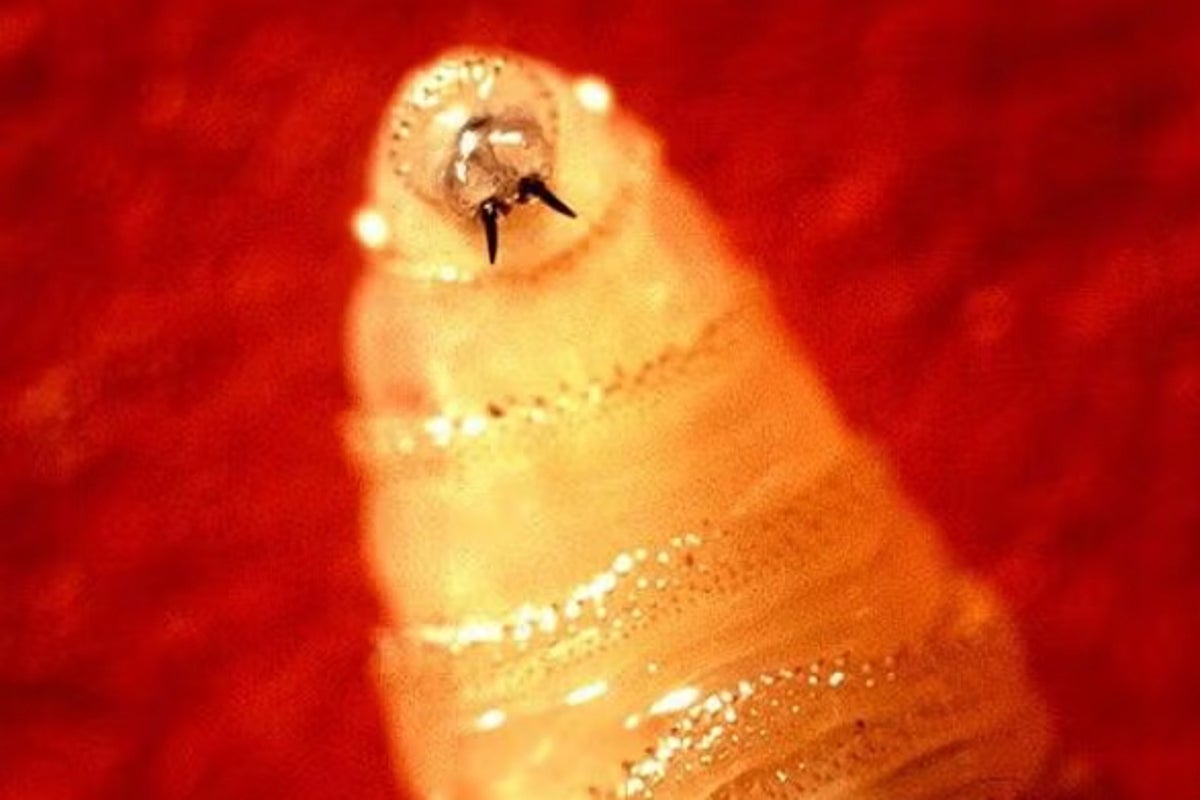
The number of cases of flesh-eating screwworm in animals has risen by 53% in the last month in Mexico, according to government data.
New World Screwworm (NWS), which eats warm-blooded animals alive, is typically found in cattle, as well as horses, sheep, and dogs.
Earlier this week, a case of the parasite was detected in a person in the US for the first time in years. The infected person had returned to the country from El Salvador before their diagnosis, according to the US Department of Health and Human Services (HHS).
A spokesperson for the HHS, Emily Hilliard, said that the risk to public health in the US from the disease remains “very low”.
The US livestock industry fear a potential outbreak of infection as the parasite has crept its way up from Central America into Mexico. Last year, the United States Department of Agriculture estimated that an outbreak in Texas, the state which produces the most cattle, would cost at least $1.8 billion.
The parasite was eliminated in the US in 1966, and in Mexico in 1991. The first new case was detected in Mexico in November 2024 after an outbreak in Central America in 2023 spread northwards.
The female screwworm lays its eggs in or near open wounds, which hatch into maggots that feed on the live flesh. If untreated, the larvae will tear into the tissue with their mouth hooks.
Although infection is often not fatal for humans, officials have warned that elderly people or those with pre-existing health conditions should remain vigilant. Last July, an 86-year-old woman from the Mexican state of Campeche died after an infestation of larvae exacerbated her skin cancer.
Mexico and the US are building “sterile fly” production facilities in Chiapas and Texas, the same method which eliminated screwworm from the US in 1966. The centres produce and release sterile male flies to mate with the females in the wild, reducing the screwworm population.
Detections of the parasite surged dramatically in Panama in 2023, with subsequent cases reported in Costa Rica, Nicaragua, Honduras, Guatemala, Belize, El Salvador, and Mexico in 2024.
